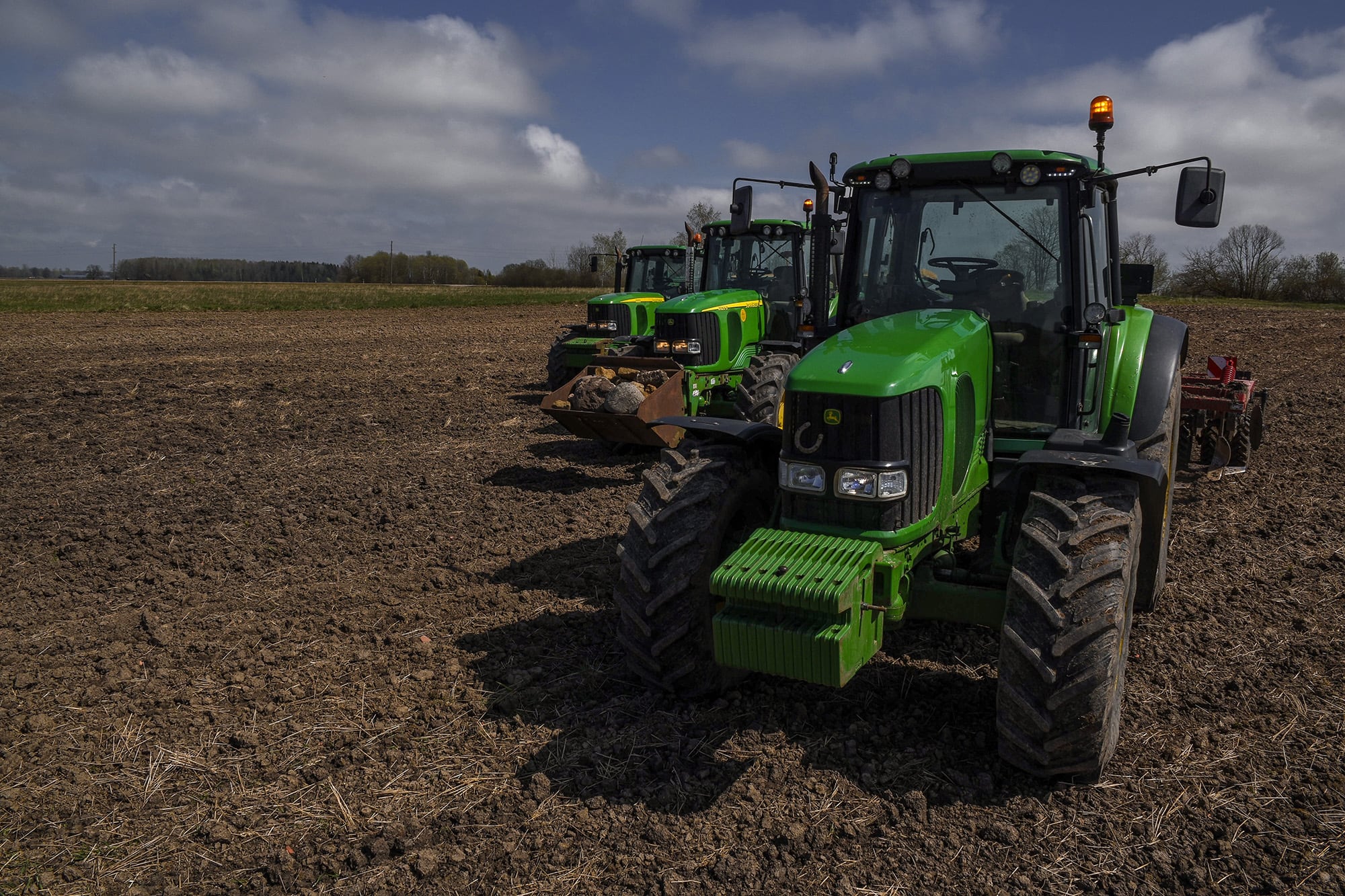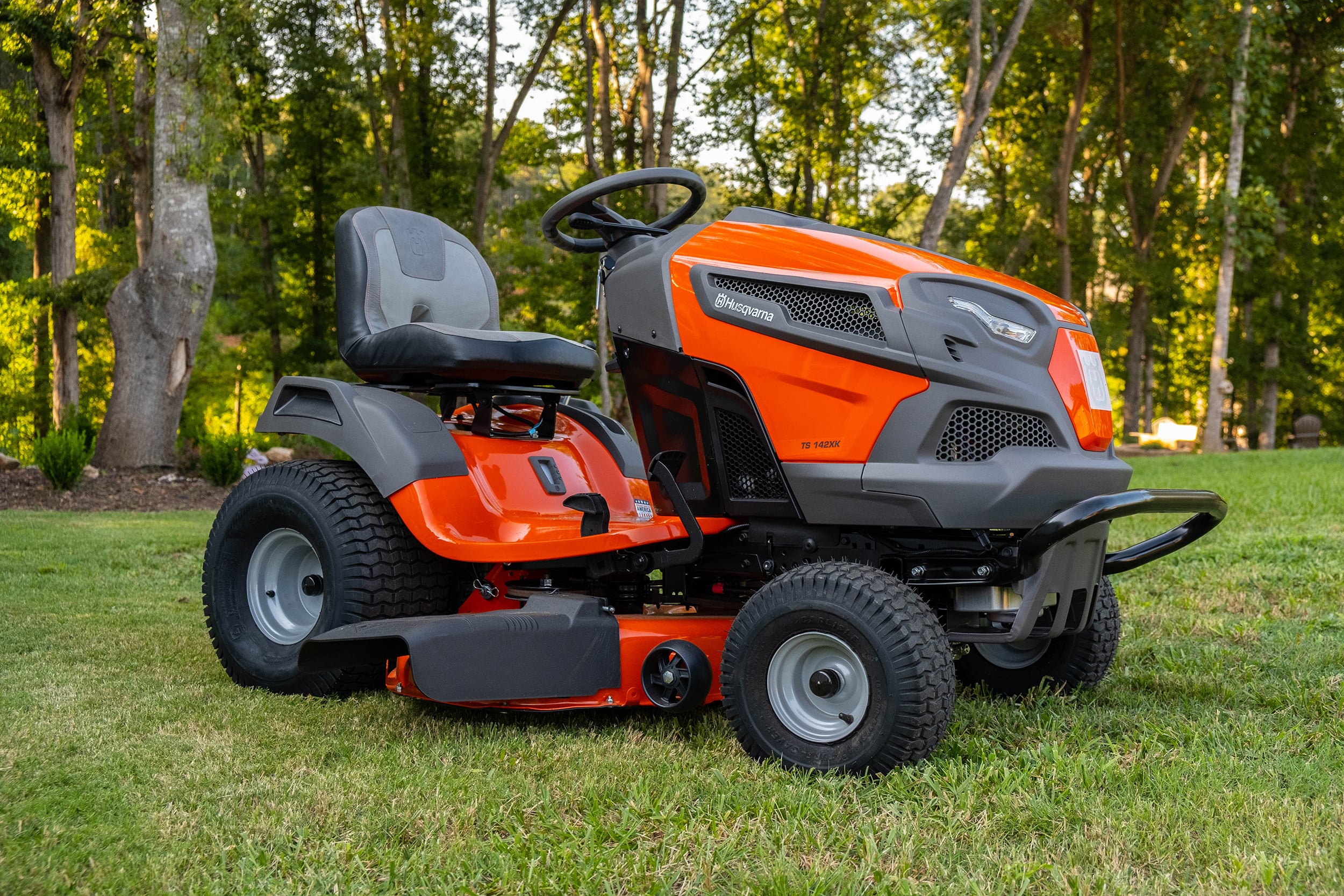How to Prepare and Maintain Tractors for Winter

Freezing temperatures, snow, and ice are just around the corner for many Americans, and that means it’s time to prepare. If you are properly prepared winter will come and go without too many headaches.
On the other hand, if you don’t prepare winter can come with a whole lot of aggravation, frustration, and unneeded expenses. So, if you’re curious about how to beat the cold and save some money this winter just keep on reading.
If you live in a place that doesn’t experience winter– Here is the one tip you need to know: DON’T MOVE. Kidding aside, winter can be a lot of fun, but before winter comes you need to decide how you are going to use your tractor. Are you going to store it? Use it every day around the farm? Use it periodically to work or plow snow? When you have this answered, you’re ready to read on.
How to store my tractor for winter
You’ve decided to store your tractor for the winter months, here is a quick list of things you need to do.
1. Stabilize the fuel so it doesn’t oxidize and go bad.
If your tractor uses diesel fuel, we recommend AirTec Cetane CS1 to stabilize and protect your fuel. If your tractor uses gasoline, we recommend using AirTec Octane FS1 to stabilize and protect your gasoline all winter long.
2. Remove or charge the battery
A tractor’s battery can be costly to replace and can go bad without frequent use. Use a battery maintainer to keep the battery charged over winter or use a battery charger to give the battery a charge every couple of weeks.

Don’t have a charger or maintainer? No worries. Just remove the battery and store it someplace warm. It doesn’t have to be hot, just a relatively constant temperature above 35 degrees will help a lot.
3. Air up those tires
As it gets colder the air in your tractor’s tires will constrict and cause the pressure to drop. Therefore, pump up your tires and check them periodically to make sure they don’t get too low. If they are low over the winter months, it could cause the rubber to crack and may shorten the lifespan of the tire or result in a leak.
4. Grease every fitting!
Any tractor going into storage needs to be greased with good long-lasting grease. You need to make sure you grease every fitting because greasing will protect the fitting, bearing, and/or bushing from condensation and corrosion. The last thing you want is a rusty bearing or bushing come spring.

We recommend AirTec G200EP which is extremely stable and won’t oxidize or get hard in combination with a Lube-Shuttle NO-MESS grease gun, so you don’t end up greasing yourself.
How to prep your tractor for casual use this winter
Did you read the last section on “How to Store my Tractor?” If not, go back and give it a read. If you are going to casually use your tractor this winter, you need to prepare like you are going to store it. Why? Because you don’t know when you are going to use it and it could sit for weeks or even months before getting used.
Therefore, prepare your tractor like you are going to store it and if you use it in a week, month, or half year-no worries, it will start and run perfectly.
Tips for using your tractor all winter long
If you own a hobby farm or get a lot of snow you may need your tractor every week or every day all winter long. Just think of everything depending on your tractor. The animals on the farm depend on your tractor to bring them food and bedding and your family needs the driveway open so they can work, school, or go to the store.

A lot of things can depend on your tractor working when you need it. Here’s how to make sure your tractor is up to the task:
- Add anti-gel to your diesel fuel. Diesel fuel can gel when temperatures drop below freezing, so you must ensure you have added a diesel fuel anti-gel. We recommend AirTec Frostline -40 to make sure your fuel stays liquid and ready.
- Park in a heated garage if possible or use a block heater to help your engine start. When it gets cold engine oil starts to get thick which makes it harder for an engine to start. Therefore, if you can, park inside or utilize a block heater to warm the oil up so the engine starts with ease. If you don’t have either you can use a heat lamp, however, don’t leave the heat lamp unattended. The last thing you want to do is cause a fire or damage to your tractor.
- Let your tractor warm up. Do you jump right out of bed and start your day? Maybe, but most of us don’t. Your tractor is the same way, it needs to warm up and get all the oil and coolant moving and get up to the right running temperature. So once started, let your tractor idle for 2 to 5 minutes before you start to use it.
- Add weight and/or get tire chains. Tractors don’t always have the best traction in snow so it may be a good idea to add weights to your tractor to help with traction. We recommend weights from the manufacturer because they are designed to be mounted right on the tractor, which is always the safest option. Whether or not you have weights you may want tire chains. Tire chains are particularly useful in icy conditions and will greatly reduce slippage. Tire chains can usually be found at a local farm/ag supply store and it has a wide range of tractors.
Final Words!
Most importantly, stay safe this winter and take it slow with your tractor and your car. Bonus Fact: Everything we discussed in this blog can also be applied to your car or truck. It might be time to make a winter maintenance checklist.










